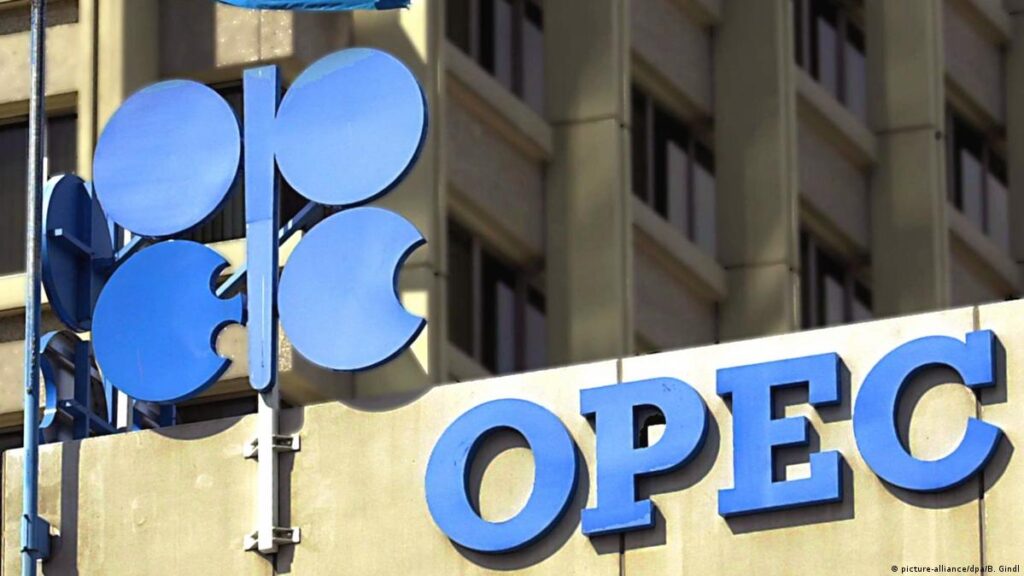Little known to the public, the oil group OPEC has devoted almost half of its funding to the continent and has decided to prioritise food security and climate.
Last December, the OPEC Fund approved $280m in loans to the continent – from Côte d’Ivoire ($75m) to Benin ($14m). In early February, a $50m contribution to the Africa Finance Corporation (AFC), the institution dedicated to supporting infrastructure on the continent, was announced. A first and previous loan of the same amount was approved in early 2021.
$10bn in Africa
Created in 1976, the Fund is owned by 12 oil-producing countries, all of which are members of OPEC except Ecuador and Indonesia. Historically, it has only operated outside the borders of its member countries, with Saudi Arabia (35% of the capital), Venezuela (16%) and Kuwait (12.8%) at the forefront. Its African shareholders are Nigeria (8.6%), Libya (6.2%), Algeria (3.5%) and Gabon (0.2%).
The continent has a de facto particularly high share in the OPEC Fund’s resource allocations. “Exposure to African countries stood at $2.86bn in September 2022, compared to $2.56bn (an increase of $300m) in December 2021,” the Vienna-based multilateral institution, which also hosts OPEC, told us.
Since its inception, the OPEC Fund has provided “a total of $23bn for more than 4,000 projects worldwide; 45% of this overall financing has been provided to African countries, with the figure standing at $10.4bn,” it said. At the end of September, Egypt ($328m in loan exposures) and Morocco ($230m) were its top countries of operation on the continent.
A more ambitious and committed institution
The OPEC Fund has been led since November 2018 by Saudi Abdulhamid Alkhalifa, who holds a PhD in economics from the University of Miami, Florida, was the number two at the Saudi Arabian Public Investment Fund and came up through the World Bank. Under his leadership, the financial institution became increasingly ambitious. In 2019, its shareholders approved the use of capital market financing.
The institution has been heavily involved in the response to the Covid-19 crisis, approving a $1bn budgetary envelope in April 2020 and allocating it to some 20 projects and countries (including Egypt, Morocco, Benin, and on a pan-African scale including a partnership with Afreximbank).
Although owned by hydrocarbon-rich countries, the fund has been particularly active in recent years in financing climate change efforts. In 2022, it approved a $1bn facility to address the effects on global food supplies and prices resulting from the crisis in Ukraine.
It has committed $1bn “to address imminent food security needs in partner countries”, according to Standard & Poor’s (S&P). Its Climate Change Action Plan includes $5bn for climate action, “in addition to its regular energy-related lending”, says the same source.
According to the strategic information provided to the rating agencies, as much as 15% of the new commitments will be for the continent, financed from a much larger resource envelope, thanks to funds mobilised in the markets. The fund’s commitments are expected to grow at an average annual rate of 7%, up from 4.5% in recent years. According to S&P, “particular attention” will be paid to transport, agriculture, energy, trade finance, private sector development, and banking and financial services.
Progressive debt
Until now, the institution has financed its operations solely from its own funds, a rare occurrence in the development world. As a result, its debt-to-equity ratio on 30 September 2022 was exactly 0%.
According to Standard & Poor’s (S&P), “its risk-adjusted capital ratio (CAR) was 81%,” as per figures from early November. “The OPEC Fund currently has no funding gap, with assets outnumbering liabilities by 80 to 1,” the rating agency said in January.
This situation is expected to change as the objectives laid out in the institution’s development plan have been realised. In January, the Bank raised its first benchmark loan of $1bn on the markets. “We expect debt growth to be gradual and the debt-to-equity ratio to remain significantly below the 150% limit over the medium term,” says the rating agency.
Source : The Africa Report


